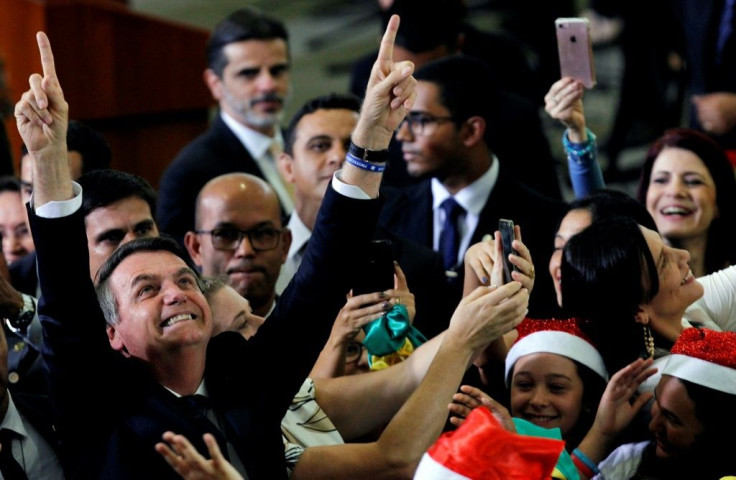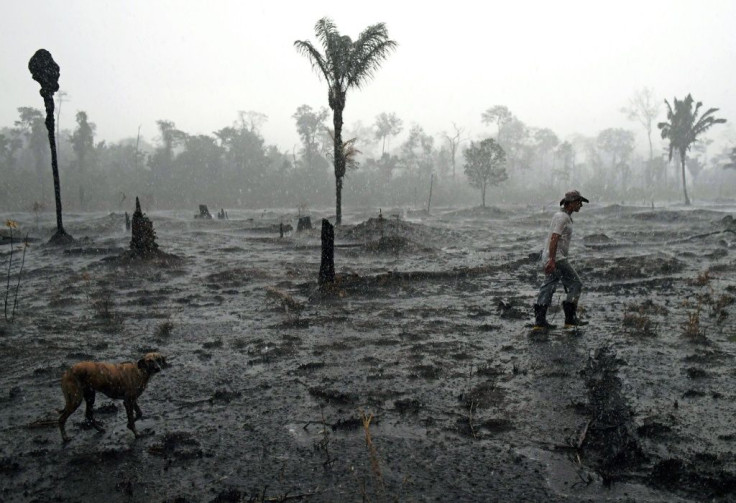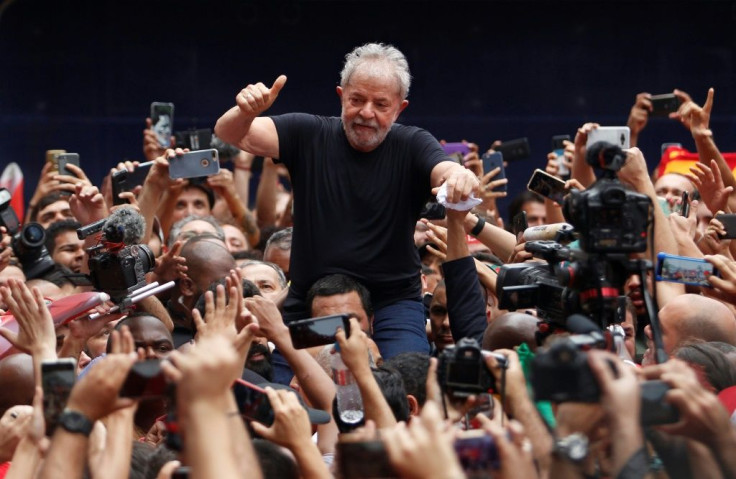Bolsonaro: A Year Of Anti-establishment Uproar In Brazil

Right-wing President Jair Bolsonaro has had a combative first year leading Brazil after vowing to "liberate" the country from the left and "globalization," while pushing his pro-gun and religion agenda.
Yet it hasn't been easy for the former army captain, a self-confessed fan of Brazil's 1964-85 dictatorship who has readily blamed democratic checks for his inability to deliver on promises.
"I always dreamed of liberating Brazil from the nefarious ideology of the left," he said during a visit to Washington in March.
"We have to deconstruct many things, undo many things, before starting to do" others, he added.
He's been at loggerheads not just with Brazil's left wing, but also climate change activists and international organizations castigating him for policies that have seen deforestation in the Amazon rainforest surge since he took office.
In September, as hugely damaging wildfires raged in the Amazon eliciting worldwide alarm, Bolsonaro warned the United Nations to stay out of Brazil's affairs.
"We're not here to erase nationalities and sovereignty in the name of abstract 'global interests,'" Bolsonaro told the UN's General Assembly.
It's been a turbulent time domestically since the 64-year-old took office on January 1, and months without resignations or sackings in ministries or state agencies have been rare.

Bolsonaro's more pragmatic supporters -- the financial markets, farming industry and military high command -- have been competing for influence against evangelical churches and the president's three eldest sons, who have been highly active on Twitter.
The government is split between the "enlightened side and a dark side," former finance minister Antonio Delfim Neto told Exame magazine, praising in particular ultra-liberal economy minister Paulo Guedes.
This is "a government that is economically liberal and politically anti-liberal," said Marcos Nobre, a philosophy professor at Campinas University.

Having originally promised he wouldn't seek re-election, Bolsonaro has already backtracked, saying in June: "If the people want it, we'll stay for another four years."
The left is divided and was weakened by the jailing of former president Luiz Inacio Lula da Silva, giving Bolsonaro the opportunity to rally his supporters.
It seems to be working. After an initial dip, his popularity has stabilized with one third of voters judging his government's performance as good, one third bad and a final third calling it fair.

A poll by FSB/Veja earlier this month said the only person who could defeat Bolsonaro at the next election was his own justice minister, Sergio Moro. While a judge, he jailed Lula, who was released last month.
Bolsonaro is behaving "like an anti-system president and when he fails he can say that he's trying to change things democratically but the system won't let him," said Nobre.
He says Bolsonaro wants to "install an authoritarian regime but can't do it" right now.
Bolsonaro and his sons are nonetheless testing the system's limits.
Eduardo Bolsonaro, a lawmaker, said in October: "If the left radicalizes, we'll have to respond" like the military dictatorship did in 1968, when it dissolved Congress, suspended the constitution and imposed censorship.
Having been elected president despite the lack of backing from a powerful party, Bolsonaro founded his own political grouping -- Alliance for Brazil (APB) -- in November with the promise to "respect God and religion," oppose abortion and legalize the carrying of arms.
APB is due to make its entrance to the political scene in municipal elections next October.
But while Bolsonaro appears to be flexing his political muscles for some, others view his actions as an admission of powerlessness.
Guedes managed to get his pension reform through Congress but the expected economic recovery hasn't happened and unemployment isn't reducing either.
Other campaign promises -- such as legalizing the carrying of arms and offering immunity to police carrying out lethal operations -- were either rejected by Congress or halted by the Supreme Court.
Bolsonaro has also been forced by the powerful farming lobby to tone down his anti-China and anti-communist rhetoric, and also to postpone moving Brazil's embassy in Israel to Jerusalem so as not to alienate important markets in Asia and the Middle East.
He appeared to suffer a blow in December when his political ally US President Donald Trump announced tariffs on steel and aluminum imported from Brazil.
On Friday, Bolsonaro announced Trump had scrapped the taxes.
"We have a lot in common. The personal friendship... that I feel for him and that he has for me are further strengthened," Bolsonaro said of the US president in a video announcing the reversal.
© Copyright AFP 2024. All rights reserved.





















